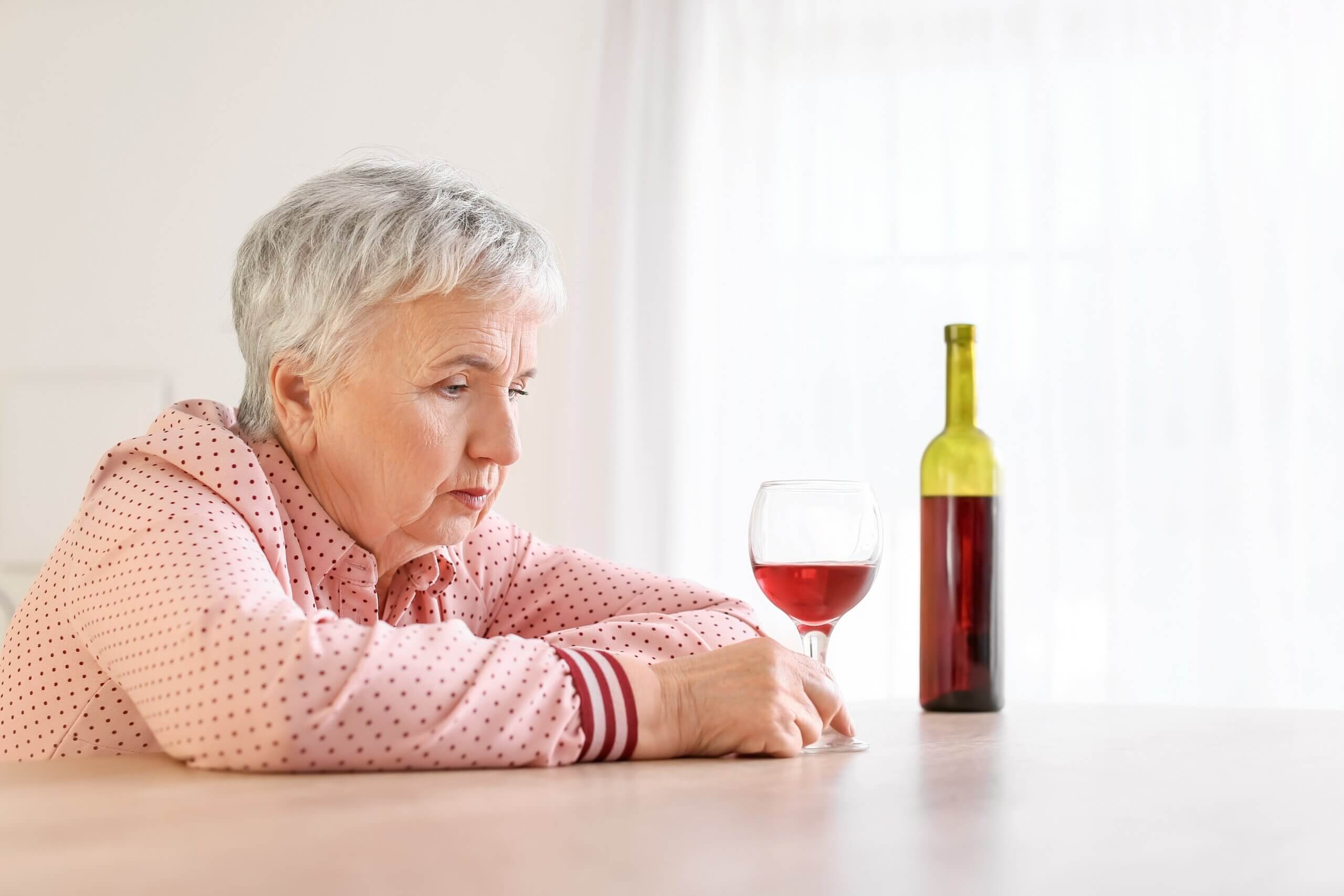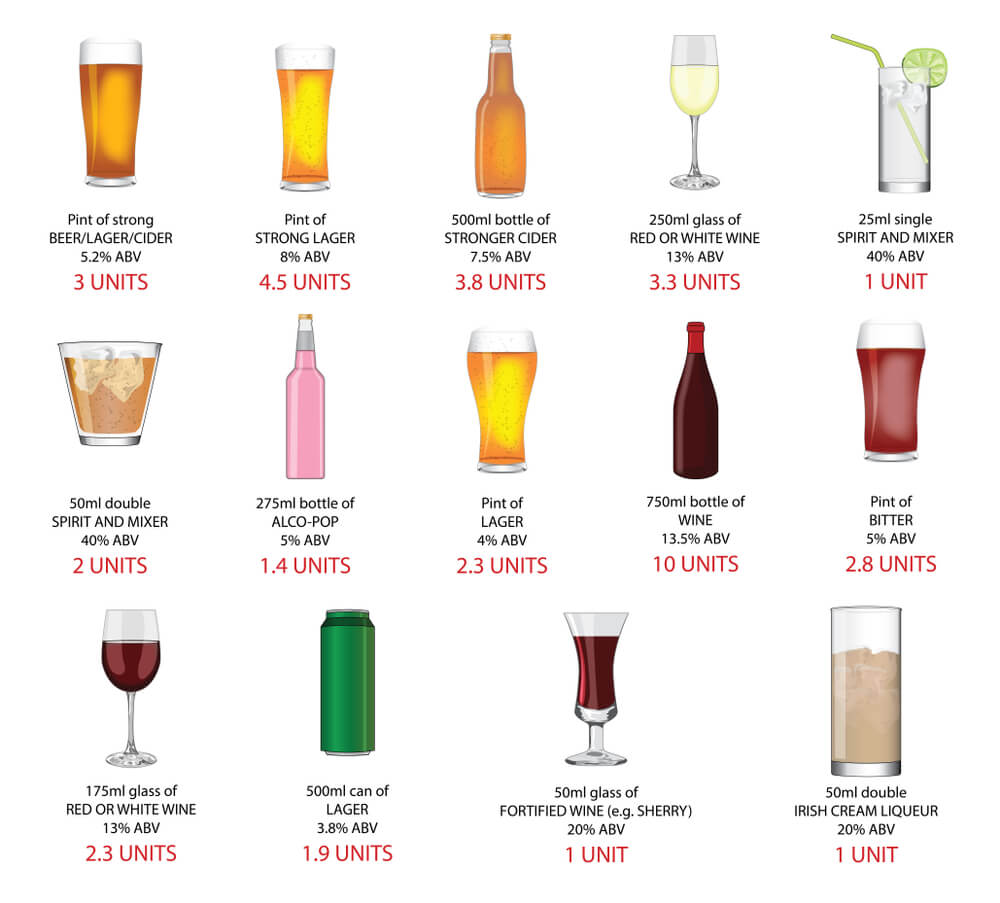
Alcohol is a part of many people’s daily lives but drinking damages the brain. Alcohol-induced dementia can occur. Many older people start drinking more to deal with physical pain or difficult emotions, while some don’t even realise how high their consumption has got.
The most recent Health Survey for England (2022) found that 55-74 year olds had the highest drinking levels, with 32% of 65-74 year olds drinking more than 14 units a week (which is considered increased risk) while 7% of 55-64 year olds drank more than 50 units a week (which is considered higher risk and equates to about 17 pints of beer or 5 bottles of wine).
For many people an extra beer or slightly bigger glass of wine doesn’t matter, but if taken too far, alcohol can increase your risk of developing dementia and other serious health problems.
How does alcohol affect the brain?
Alcohol is a toxic substance. If it is drunk heavily over a long period of time, these toxins can damage nerve cells in the brain.
Most of us know the short-term effects of alcohol – slurred speech, impulsive behaviour and finding you love everyone – but the long-term effects on the brain are altogether more sinister. As people who drink regularly age, their liver is less able to process the toxins in alcohol. This is why hangovers get worse as we get older. It also means that those toxins are more able to damage the brain. This may seem counterintuitive, if you are a regular drinker you will notice it takes more alcohol to feel tipsy than it did when you were younger, but a higher tolerance doesn’t mean that no damage is being done.
Another alcohol-related cause of brain damage is lack of Vitamin B1, or thiamine. Alcohol stops the body absorbing this vitamin properly so many drinkers can become deficient in it. Vitamin B1 deficiency can damage your memory, blur your vision and even cause delirium.
Abusing alcohol for a long time can cause poor memory, difficulty concentrating, depression, Wernicke’s encephalopathy, Korsakoff’s syndrome and other forms of dementia.
Can alcohol cause dementia?
Alcohol-related dementia, alcohol-induced dementia or just alcoholic dementia, are directly caused by alcohol’s damage to the brain. Signs of this type of dementia include:
- Memory problems
- Difficulty concentrating
- Impulsive or inappropriate behaviour
- Mood swings
- Auditory or visual hallucinations
- Confabulation, when they have false memories that they believe are true but are actually imagined
- Becoming insensitive to or disinterested in others’ feelings.
A danger is that someone may show many of these symptoms anyway because of their drinking. This can lead dementia to go unnoticed and the symptoms assumed to be purely because the person has been drinking heavily.
Case study: The double-edged sword of alcoholism and dementia
The longer the person continues drinking, the worse their symptoms become and the less they can comprehend why this is happening to them. What is because of alcohol and what is because of dementia can blur and warp, until it is impossible to say why they are behaving the way they are.
George Mulholland, 52 (at time of writing), warns of the effect of alcohol abuse in old age. His mother, Rose*, 74, has always drunk socially, but her dependency on alcohol didn’t begin until around eight years after being widowed. Rose feared dementia as her own grandmother had had the condition, but despite her work as a nurse, did not acknowledge how alcohol would affect her in her older years.
Mr Mulholland said: “My mother used to be very capable but has been a diagnosed alcoholic for several years now. She is in complete denial despite having been dried out professionally twice (once she accepted she needed help and went to rehab, the other in hospital after a fall). Since then, we have consistently tried to get her professional medical help to assist with her alcoholism and with her memory loss and ill-health caused by alcohol abuse. While she will go along with it initially, she won’t stop drinking and therefore all the professionals understandably withdraw support.
“It’s been indicated that she likely has vascular dementia, although the medical professionals are unable to give a formal diagnosis because they need her sober to test her. We’ve been advised that the alcohol is exacerbating the dementia, but to what extent they’re unable to ascertain because she won’t sober up.”

Mr Mulholland explains: “The effect on her has been enormous and she is still rapidly declining. She’s lost her driving licence, is unable to walk any distance, she can’t eat properly and she is incredibly confused, forgetful and repetitive. She has withdrawn from her social life and has driven all her friends away too. She’s become very isolated and has been prescribed anti-depressants. She won’t consider that any of this is because of alcohol. She blames all of this on old age, despite being extremely socially active, a volunteer and even able to hike mountains just five years ago.
“It affects the whole family daily. The mother that I knew no longer exists. She has become very clingy and needy, simply because everybody else has distanced themselves from her. It’s very sad to see someone who was previously very independent destroy themselves, but she won’t listen to reason.
“While she is lonely and struggles with her memory, which we all do genuinely sympathise with, any attempts to help her with these problems, big or small, are refused. She says she drinks because she’s lonely but she’s lonely because of drink.”
Mr Mulholland continues: “My advice for people who are concerned that an older family member is drinking too much would be to try and stop them early. Ideally, seek out the reason behind the drinking and deal with that. For example, if it’s loneliness, talk about retirement villages or care homes before the alcohol has taken them too far. We’ve tried everything. Unfortunately, we have found that until she wants help, there is no help to get. There is nothing anybody can do.
“Help each other because there’s very little professional help out there if the alcoholic won’t have it. At the end of the day, she is a grown woman, and until she accepts that alcohol is the cause of her problems, not the remedy, there is nothing anybody can do.”
Update
Since Mr Mulholland first shared his story, Rose has moved into a care home.
Mr Mulholland explains: “After a fall, Mum was taken to hospital in an ambulance, where she was detoxed once again and social services assessed her as being unable to care for herself. We found her a really good care home, where the staff do a fantastic job with her and we can visit every week.
“Mum is okay now. The damage alcohol has done to her brain is, unfortunately, permanent. To our surprise, her cognitive abilities actually got a lot worse, very suddenly, when she went into hospital and the drinking stopped. She’s in a dementia unit and has a diagnosis of alcohol-induced mixed dementia now. She doesn’t understand why she is in a care home, but she joins in with everything and her physical and mental health have dramatically improved.
“It’s certainly been a lesson in the dangers of alcohol and if anyone reading this looks twice at their own drinking habits then something good will have come from it.”
Helplines
If you are concerned about yours or a loved one’s alcohol intake and dementia, here are some helplines you can call or email or further advice. You can contact any of these free of charge.
| Silverline | 0800 4 70 80 90 | |
| Alcoholics Anonymous | 0800 9177 650 | help@aamail.org |
| Admiral Nurse Dementia Helpline | 0800 888 6678 | helpline@dementiauk.org |
| Al-Anon (support for families and friends affected by someone else’s heavy drinking) | 0800 0086 811 | helpline@al-anon.org.uk |


